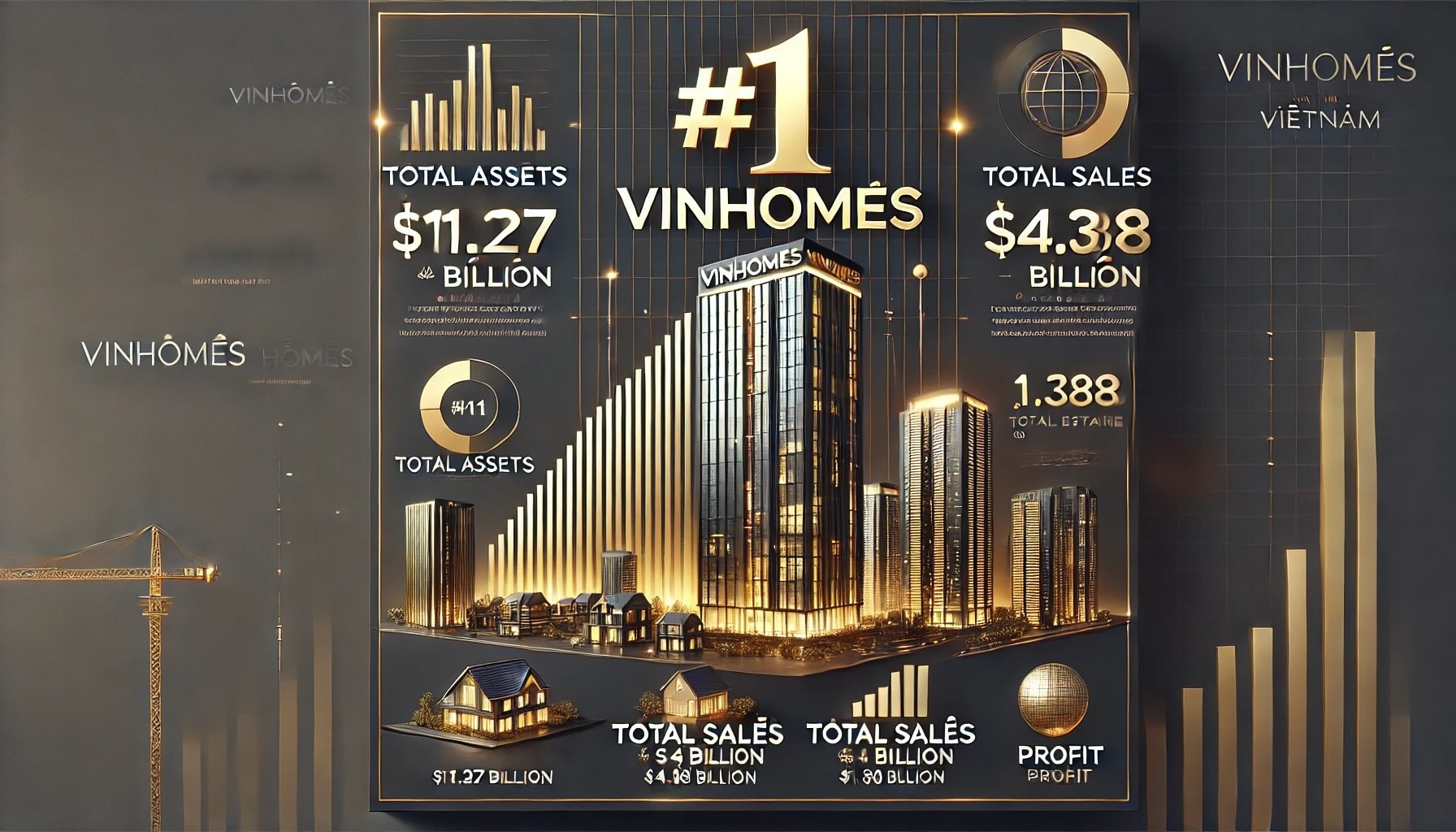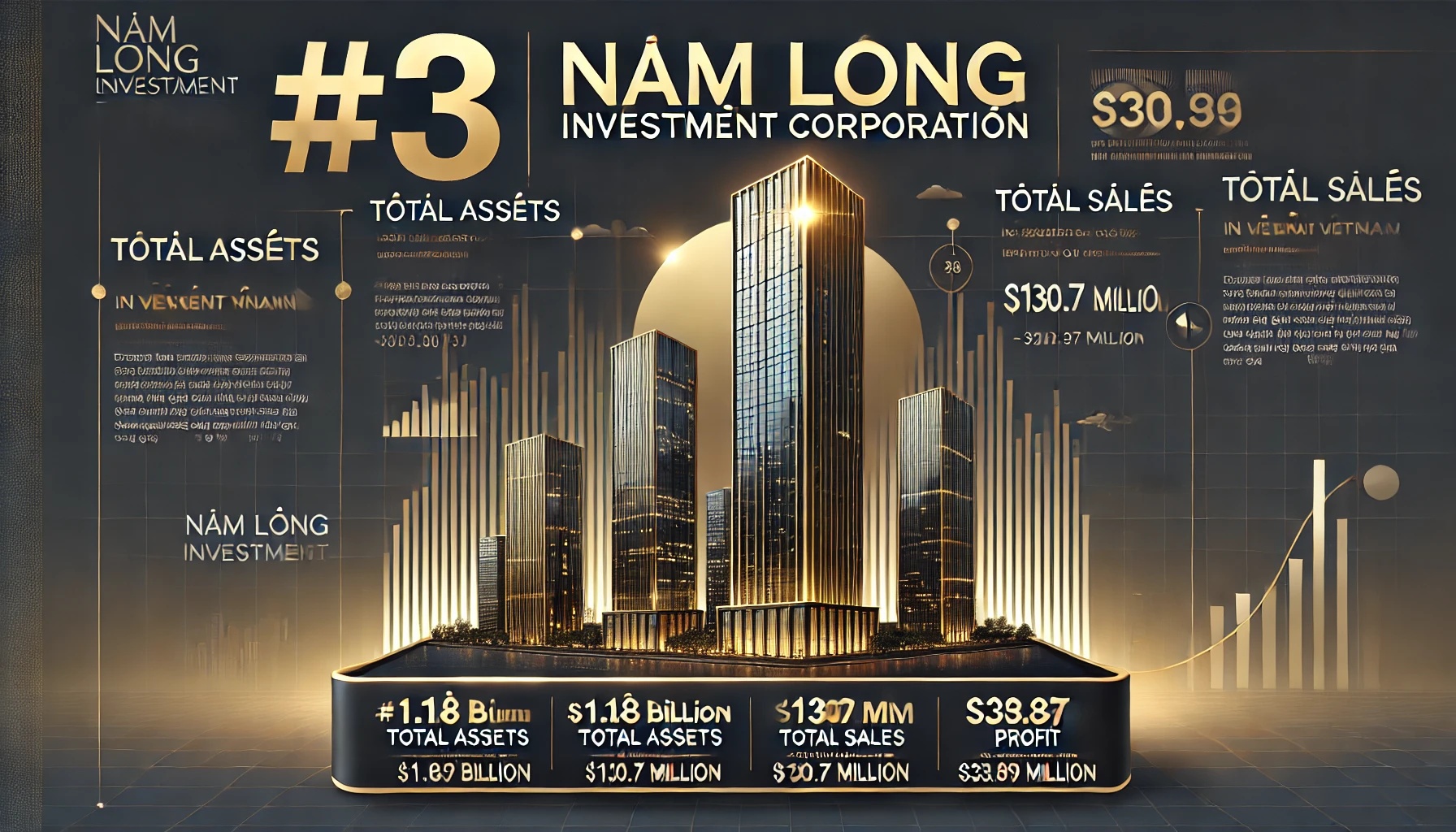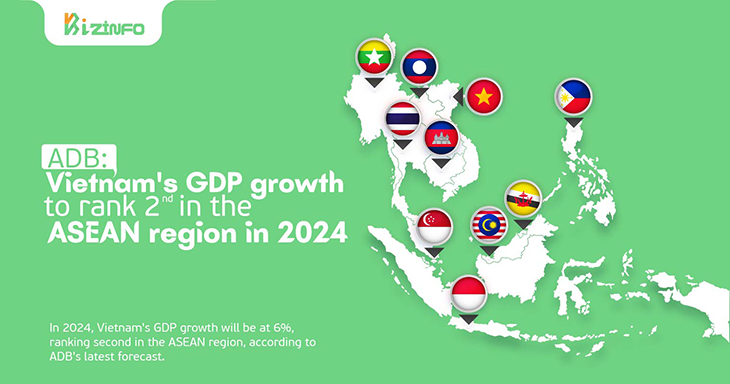Published Feb 2025
Vietnam’s Top 10 Real Estate Companies: Assets, Influence, and Economic Impact
Vietnam’s real estate sector is a key economic driver, but it faces challenges related to transparency, financial stability, and political influence. This article, powered by Vanguard Business Infomation LLC, ranks the Top 10 Real Estate Companies in Vietnam (2023) based on total assets, sales, and profits, while analyzing policy implications, tax contributions, and market risks. As government regulations tighten, only the most reputable and financially sound companies will prevail, reshaping the future of Vietnam’s property market.

Vietnam’s Top 10 Real Estate Companies: Assets, Influence, and Economic Impact
Vietnam’s real estate industry is a key pillar of the economy, but it also faces structural inefficiencies, political connections, and financial instability. As the government tightens regulations, only the most reputable and financially stable companies will thrive in the long run.
Below, we rank Vietnam’s top 10 real estate companies (2023) by total assets, analyze their economic contributions, and explore the policy implications for the industry.
Top 10 Largest Real Estate Companies in Vietnam (2023)
(Ranked by Total Assets, in USD)
|
Rank |
Company |
Total Assets (Billion) |
Total Sales (Million) |
Profit (Million) |
|
1 |
Vinhomes |
18.27 |
4,254 |
1,380 |
|
2 |
Novaland |
9.92 |
195 |
19.96 |
|
3 |
Nam Long Investment |
1.18 |
130.7 |
32.89 |
|
4 |
Khang Dien House |
1.09 |
85.77 |
29.97 |
|
5 |
Phu My Hung |
1.07 |
223.36 |
74.5 |
|
6 |
Ecopark |
0.68 |
324.79 |
74.18 |
|
7 |
Van Phu - Invest |
0.51 |
76.61 |
18.52 |
|
8 |
Sunshine Group |
0.51 |
8.18 |
9.59 |
|
9 |
Taseco Land |
0.42 |
133.03 |
20.66 |
|
10 |
DOJI Land |
0.19 |
5.17 |
7.06 |

1. The Economic Engine of Growth
Vietnam’s real estate sector contributes about 10% of GDP and supports millions of jobs. It drives urbanization, infrastructure development, and tourism, making it one of the most critical industries for economic stability.
However, a handful of companies dominate the market, controlling billions in assets while smaller firms struggle with financing and land access.
2. The Transparency Problem: Complex Ownership and Political Ties
🔹 Complicated Business Structures
Many top developers operate through dozens of subsidiaries, making it difficult to track:
- Actual ownership structures
- Debt and financial risks
- Tax contributions
Example: Novaland has numerous real estate subsidiaries, complicating financial oversight. This reduces transparency and makes it harder to assess the company’s true financial health.
🔹 Political Influence in Land Allocation
Some companies secure land cheaply through political connections, leading to unfair competition. While new government policies aim to fix this, firms with strong political ties still have advantages.
Who benefits from transparency?
- Vinhomes, Phu My Hung, and Ecopark have strong financials and clear governance.
- Firms with hidden debts or political dependence will face greater risks under new regulations.
Financial Strength: Vinhomes vs. the Rest
Vinhomes dominates the market with $18.27 billion in assets and $1.38 billion in profit, far ahead of competitors.
Why is Vinhomes so strong?
- Backed by Vingroup, Vietnam’s largest conglomerate
- Diversified revenue from property sales, leasing, and urban services
- Investor confidence and access to capital markets
Meanwhile, despite holding massive assets, Novaland, Sunshine Group, and Van Phu-Invest are struggling with lower profits.

Tax Contributions: Who Pays the Most?
The real estate industry contributes heavily to Vietnam’s state budget, particularly through:
- Corporate income tax (CIT)
- Land-use fees
- Value-added tax (VAT) on transactions
Largest Taxpayers:
- Due to stable profits, Vinhomes, Phu My Hung, and Ecopark lead in tax payments.
- Nam Long and Khang Dien House contribute steadily but on a smaller scale.
Concerns: Some companies are huge but use complex corporate structures to lower tax liabilities, reducing their economic contributions.
5. Policy Implications: The Government’s Next Moves
🔹 Stricter Rules on Land Use and Transparency
To prevent speculation and ensure fair competition, the government is:
- Tightening land-use approvals
- Increasing financial transparency requirements
- Reducing political favoritism in land deals
This will favor well-managed, financially stable companies while forcing weaker firms to restructure.
🔹 Interest Rate Policies and the Real Estate Market
Vietnam’s real estate boom was fueled by easy credit, but rising interest rates mean developers must rely less on bank loans and more on internal financial strength.
- Firms like Novaland, which are highly leveraged, will struggle.
- Companies with strong equity (like Phu My Hung and Vinhomes) will thrive.
🔹 Foreign Investment and Market Stability
Foreign investors play a major role in Vietnam’s real estate, with companies like Phu My Hung benefiting from foreign backing. However, new laws may restrict foreign land ownership, shifting the advantage to domestic developers.

6. The Future: Who Will Survive?
Vietnam’s real estate industry is entering a period of consolidation.
✔️ Winners:
- Vinhomes – Strongest financials, clear governance, and sustainable business strategy.
- Phu My Hung & Ecopark – Ethical, long-term urban planning with stable profits.
- Nam Long & Khang Dien – Mid-sized firms with smart growth strategies.
- Novaland – High debt, declining sales, political uncertainties.
- Sunshine Group – Complicated structure, lack of financial clarity, political exposure.
Conclusion: A More Transparent and Stable Market?
Vietnam’s real estate sector is at a turning point. The strongest, most transparent companies will prevail, while those that depend on political ties and unsustainable debt will decline.
The government’s push for transparency and financial discipline means:
- Ethical, well-governed firms will lead the market.
- Political favoritism in land deals will decline.
- Foreign investors will demand more financial clarity before investing.
Vietnam’s real estate industry is evolving—who will adapt and thrive and collapse under financial pressure?















